

Past Event
Content from the Brookings Institution India Center is now archived. After seven years of an impactful partnership, as of September 11, 2020, Brookings India is now the Centre for Social and Economic Progress, an independent public policy institution based in India.
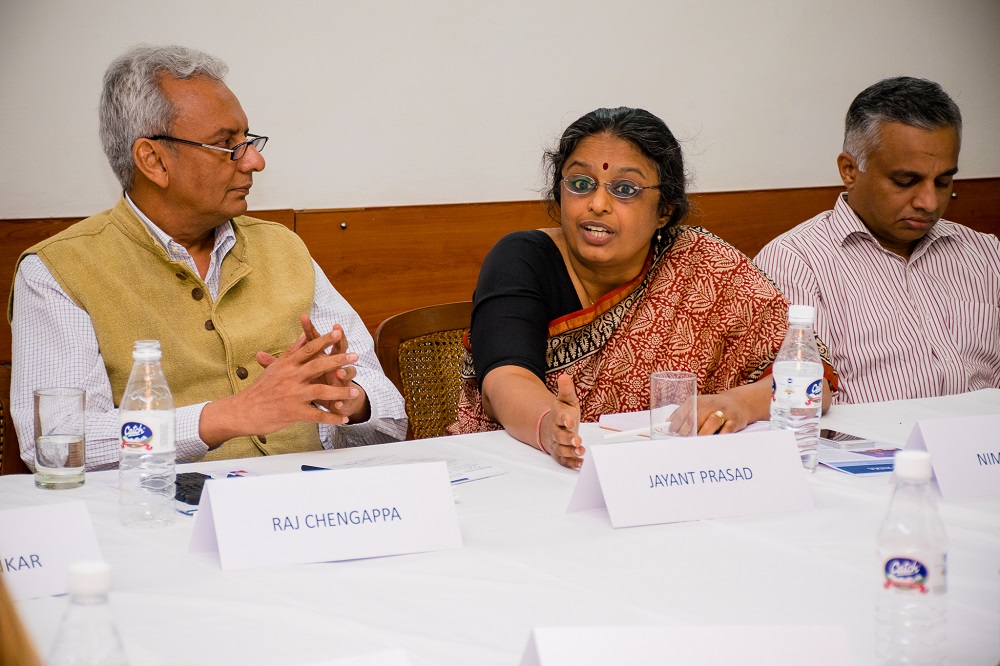
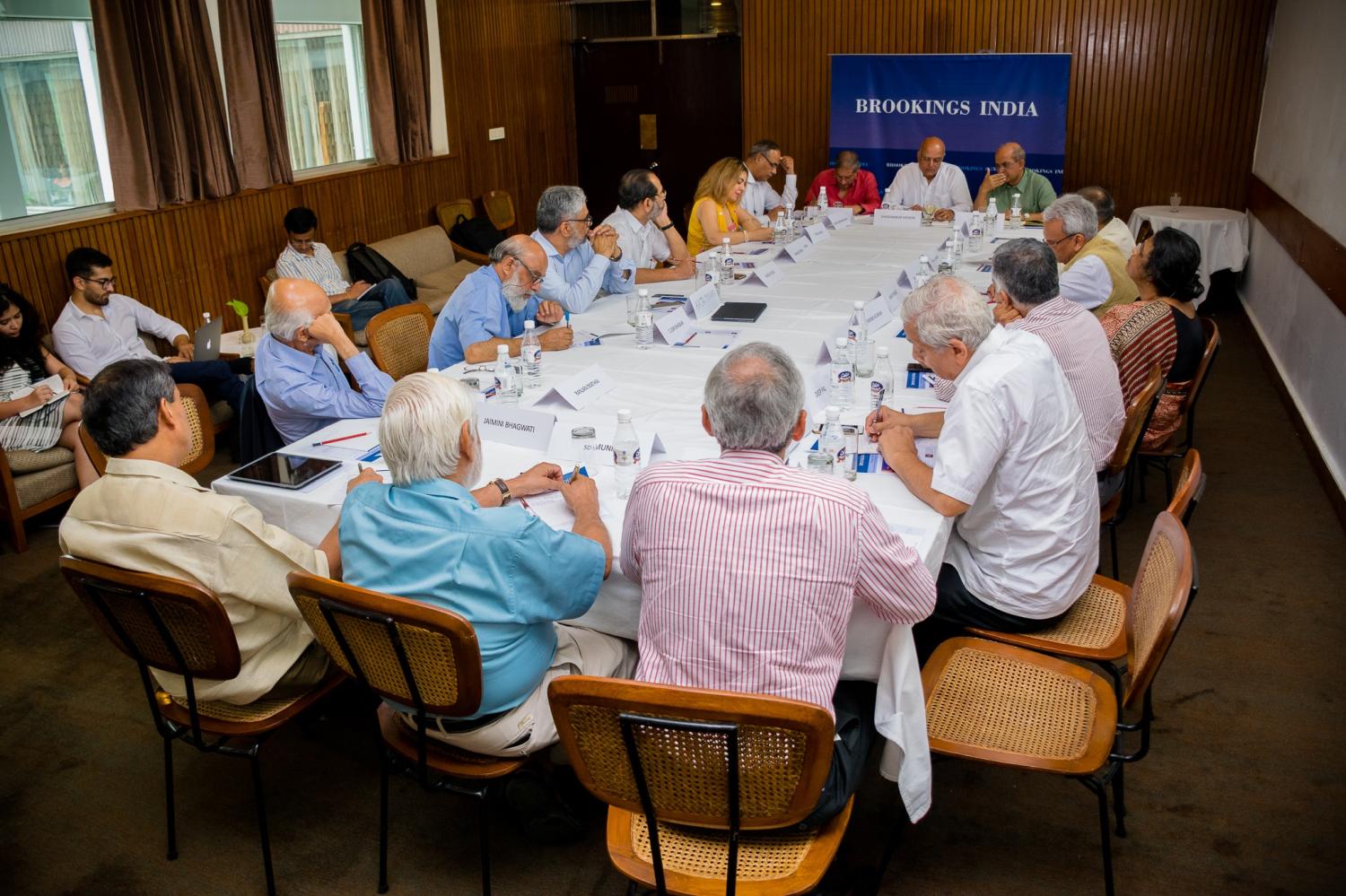
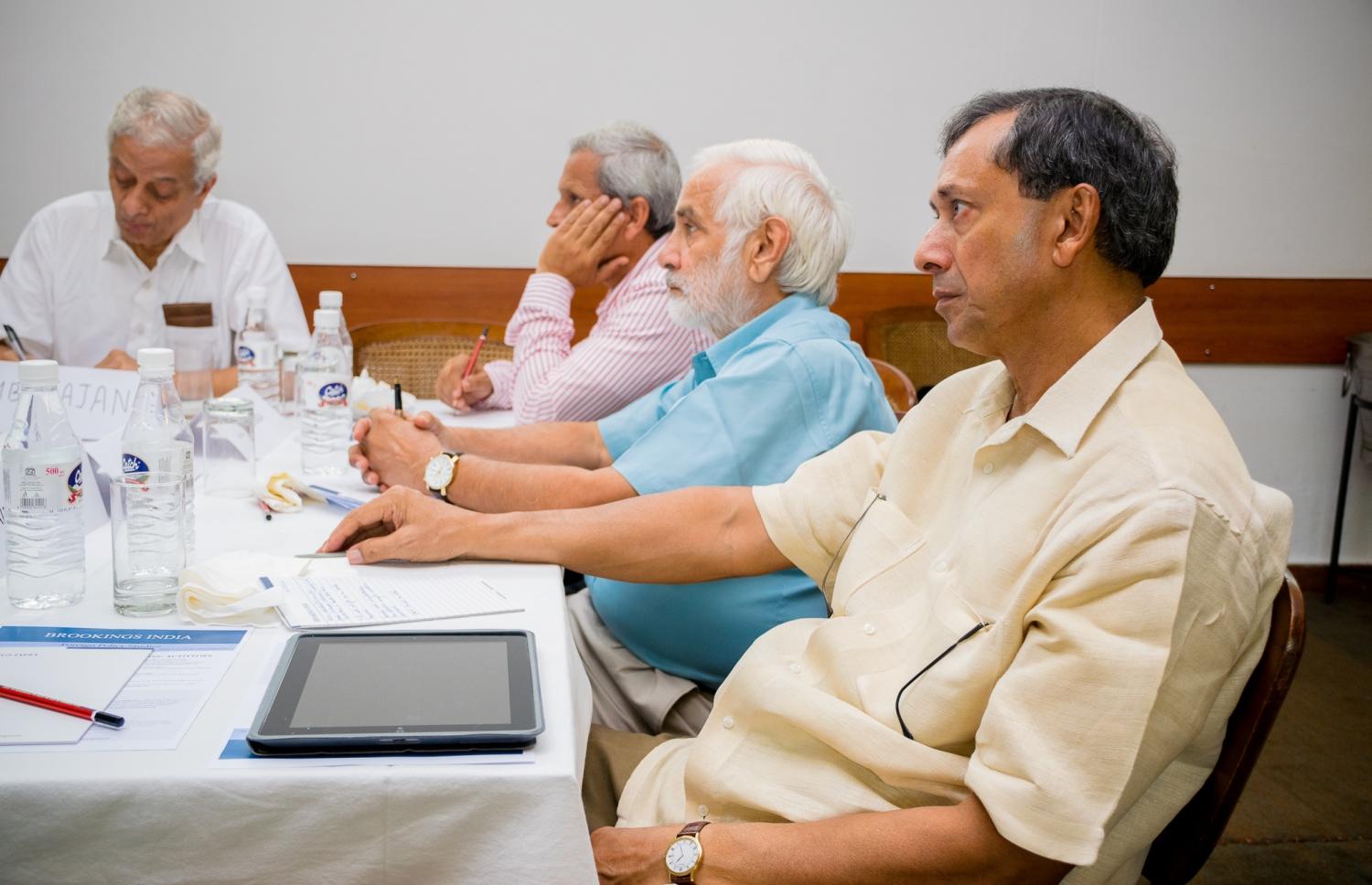
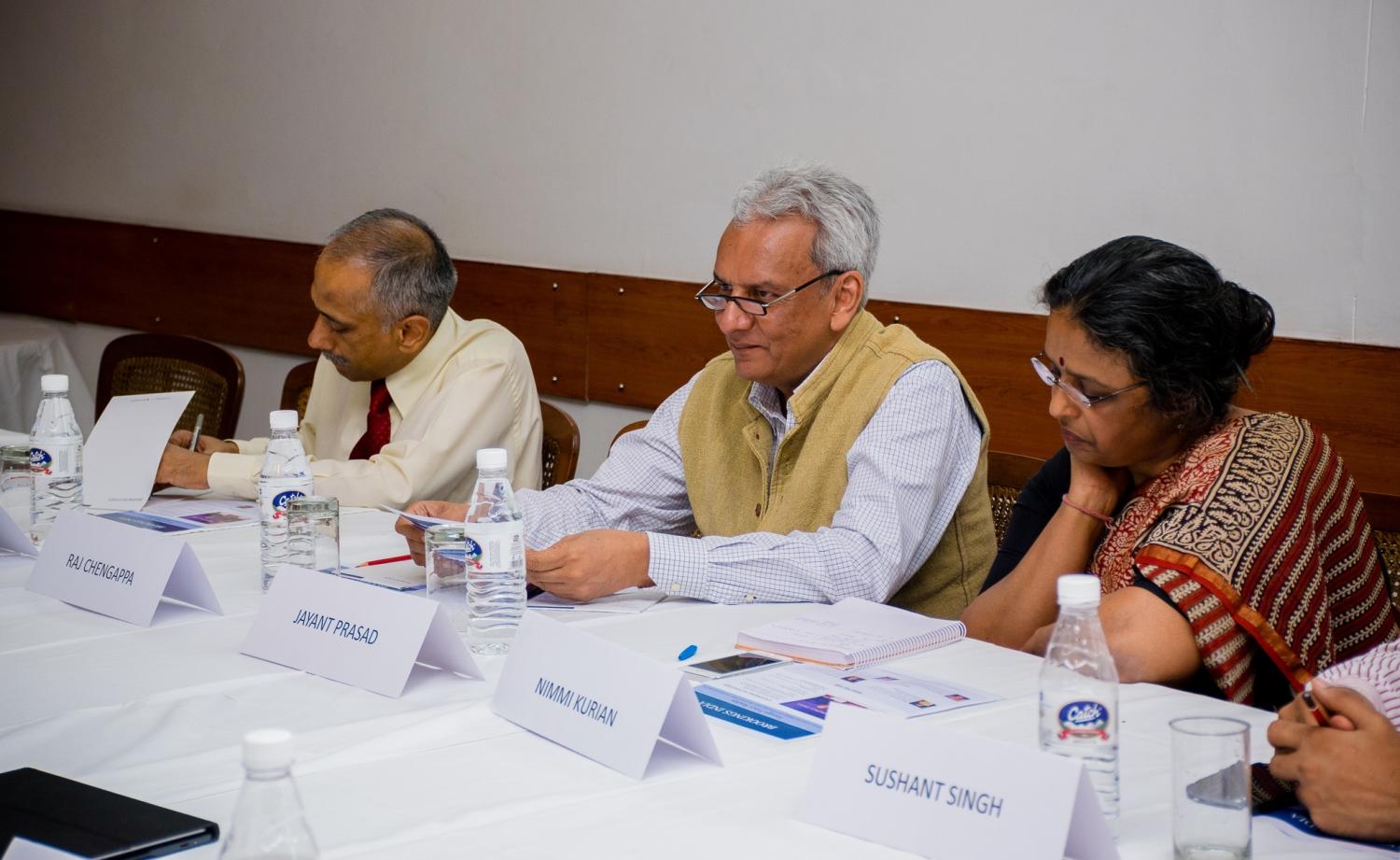
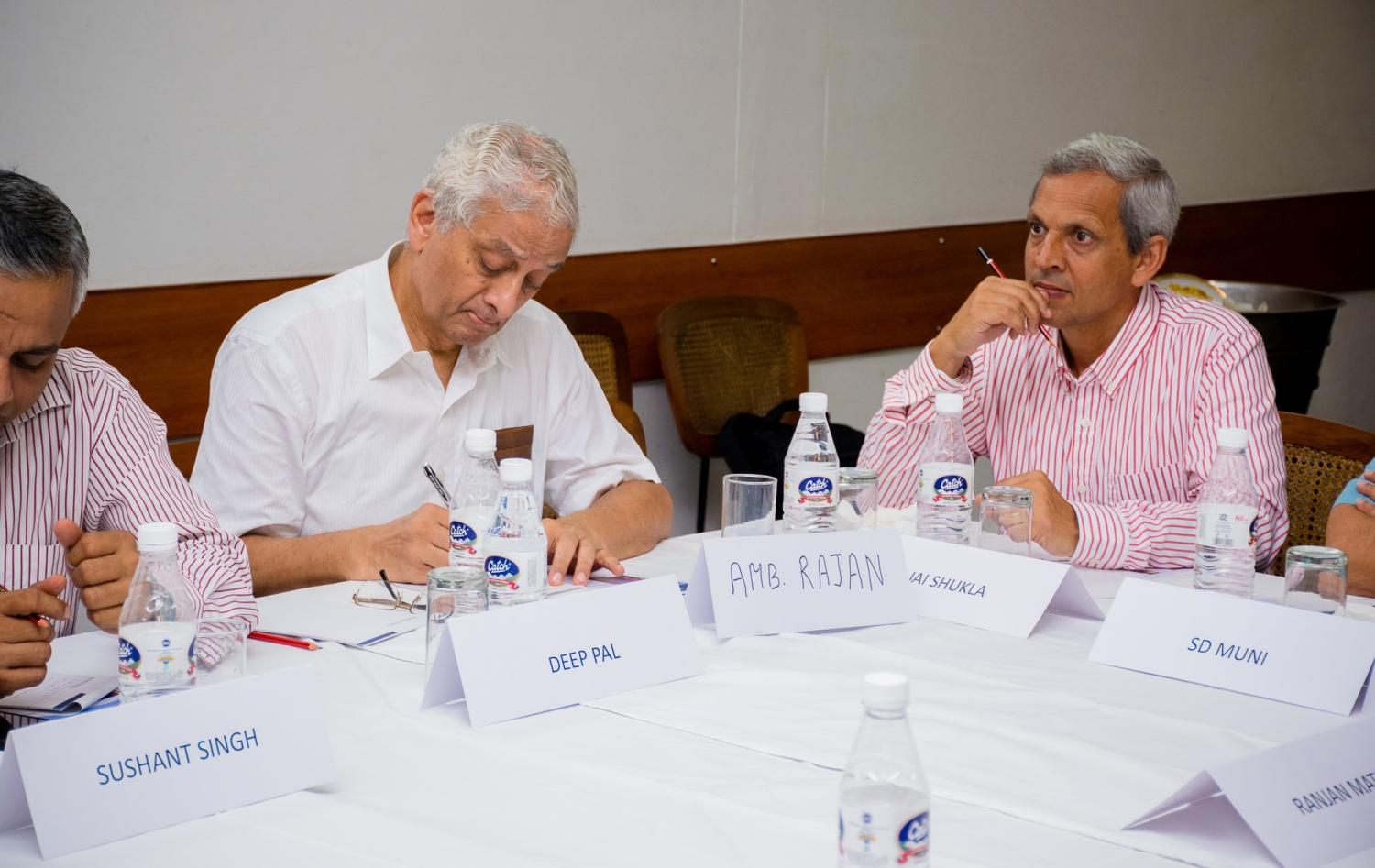
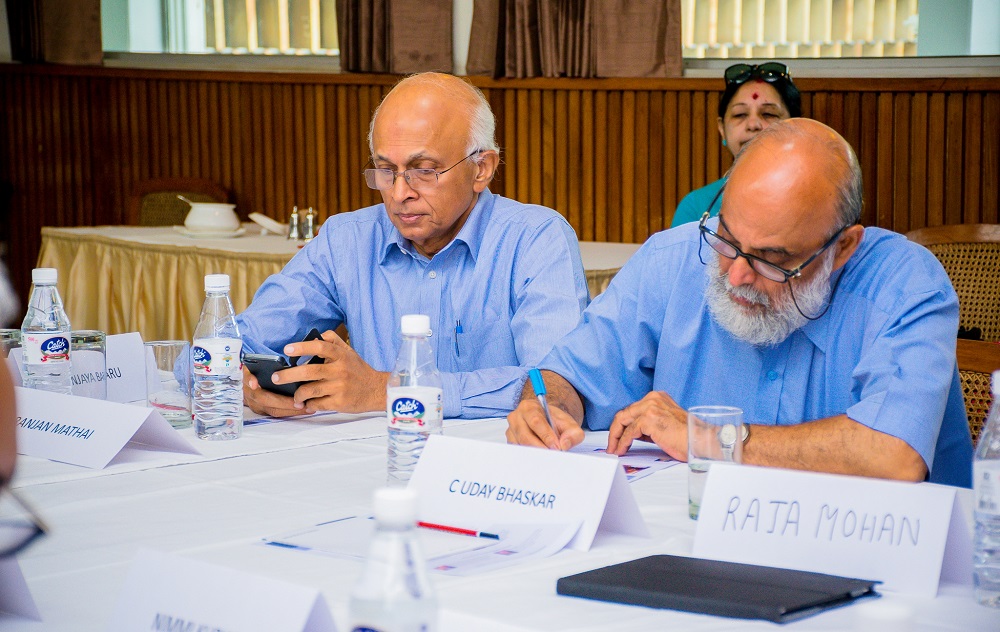
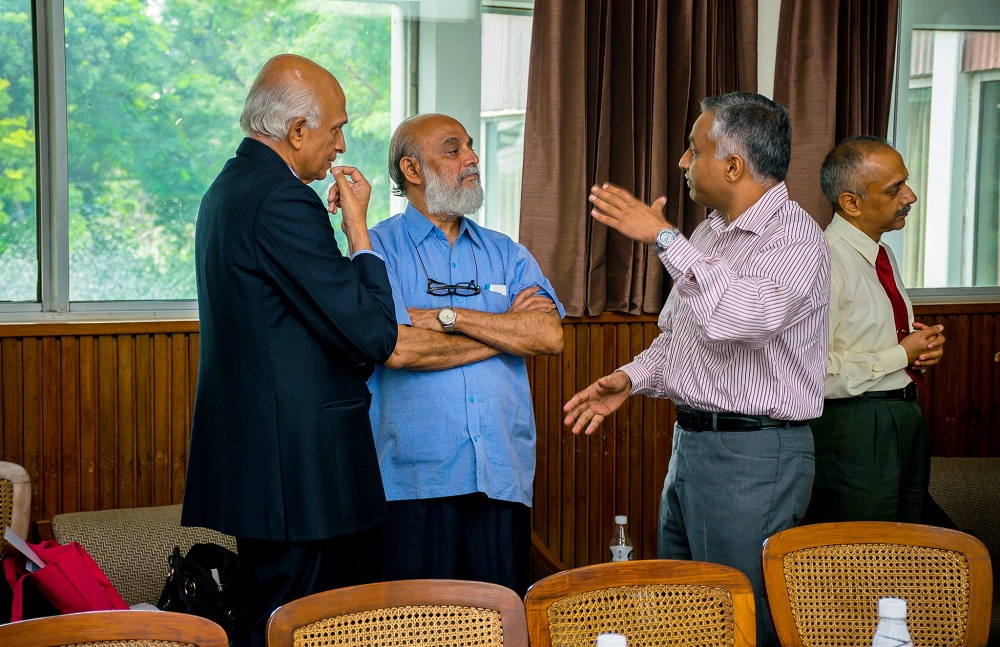
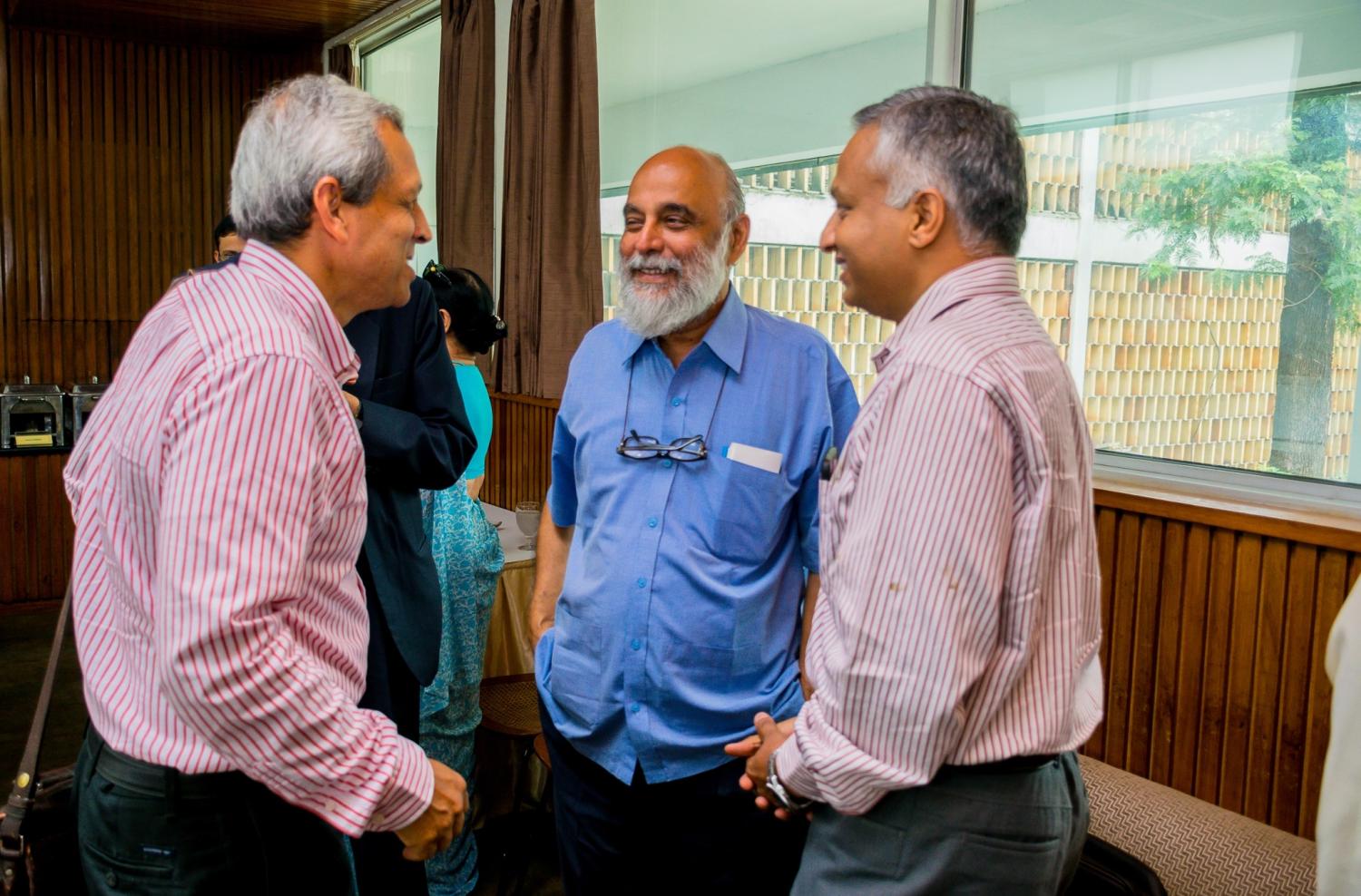
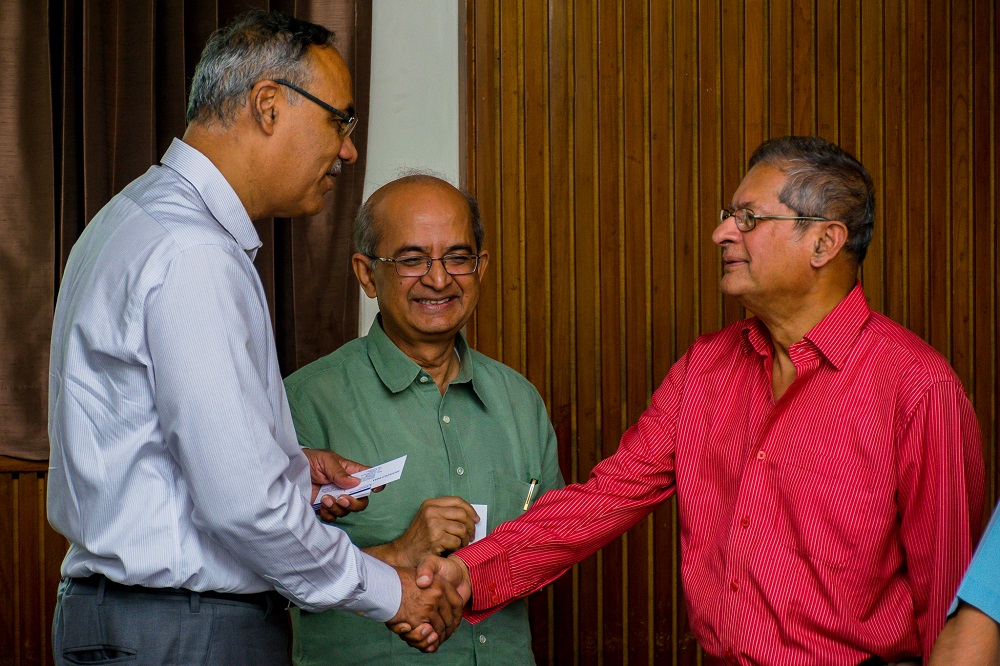
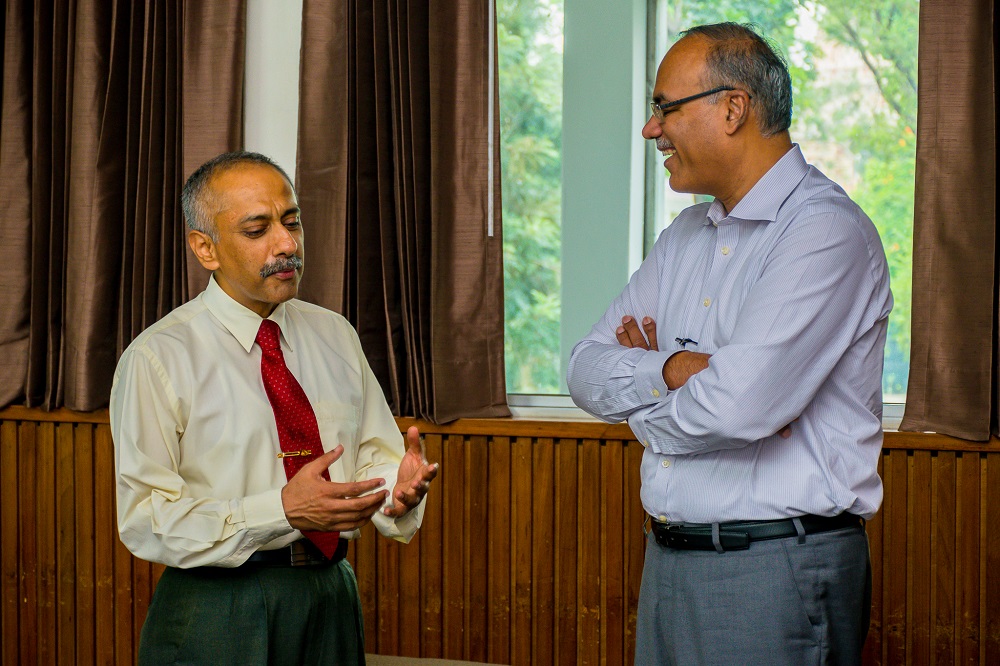
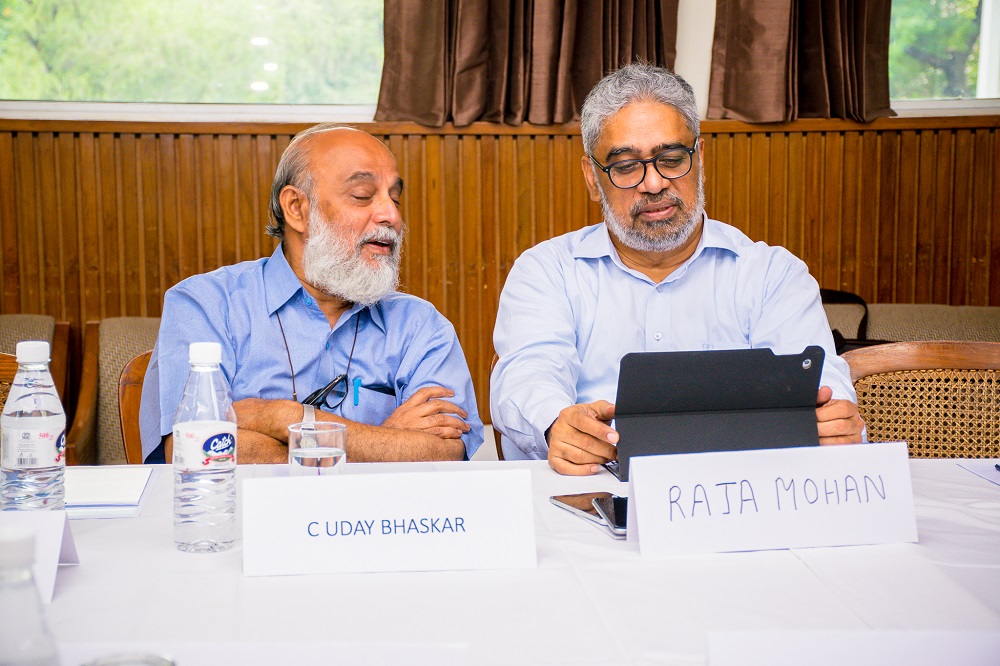
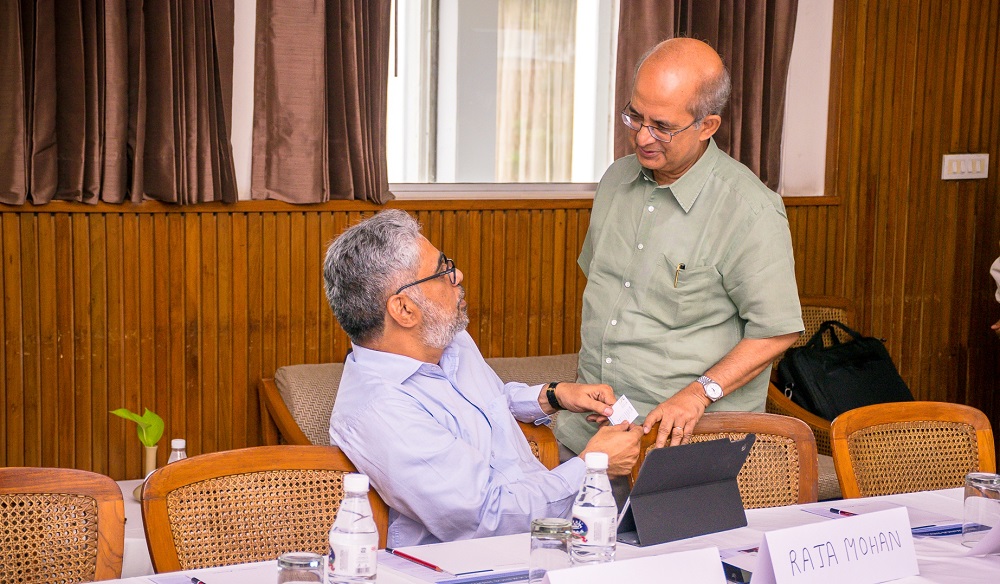
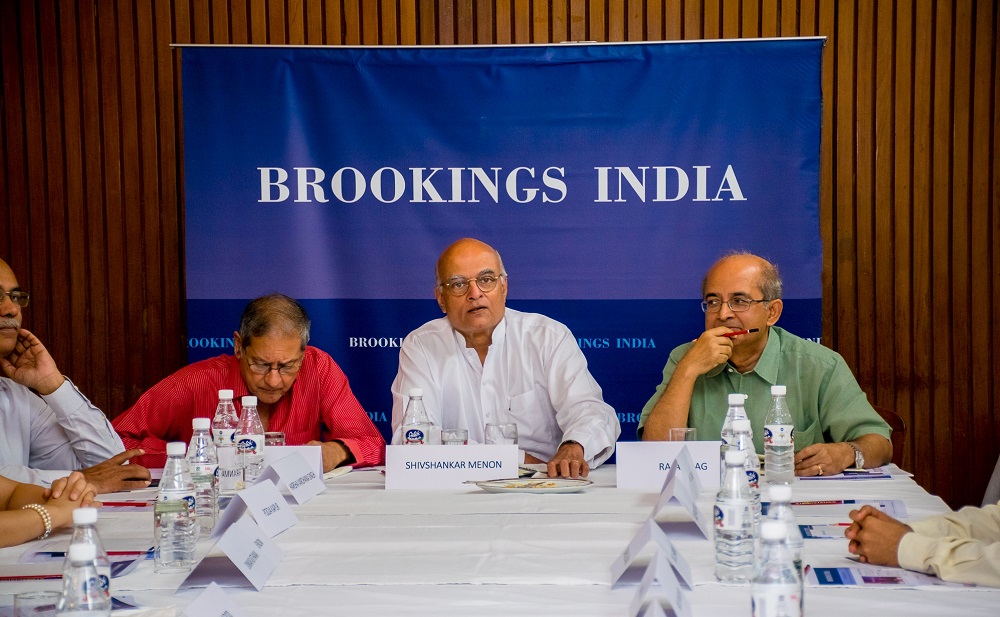
Event Report
As part of a regular private roundtable discussion series on Foreign Policy, Brookings India hosted a discussion on “Act East by Northeast” on August 23. The discussion featured Mr. Rajat Nag and Mr. Hiranmay Karlekar as guest speakers. The discussion was moderated by Ambassador Shivshankar Menon, Distinguished Fellow in Foreign Policy at Brookings and India’s former National Security Advisor and Foreign Secretary. The discussion revolved around India’s connectivity and economic integration with South East Asia and the Far East, initiatives required to secure the Act East Policy with particular focus on Indian states in the Northeast, as well as concerns of increasing Chinese influence in the region.
Connectivity is an important enabler of regional economic integration and is of particular importance to India’s Act East policy. Cross-border connectivity is critical for the Act East policy to succeed but is largely missing in the critical northeast areas of India. The Act East policy has significant trade potential for both India and the Southeast Asian countries. India’s Act East initiative has been further augmented by the ASEAN countries who are increasingly looking west for trade and investment. According to studies done by the Asian Development Bank and others, the benefits of economic integration between South and Southeast Asia could be about $570 billion, of which about two-third would benefit South Asia. It is important to note that these benefits can accrue under certain assumptions such as reduction in non-tariff barriers etc. Indian states in the northeast are therefore critical for regional economic integration and the success of the Act East policy. However, there was a consensus during the discussion that for the benefits of the Act East policy to accrue, the northeastern states need holistic economic development that can sustain the local economy as well as give impetus to regional integration. In other words, the states in the northeast should benefit directly from development and not as a side-effect of the Act East policy. To this effect, connecting the northeastern states to mainland India should be an important objective of the government. Further, this connectivity between the northeast and the rest of India is also critical for the Look East/Act East corridors to function. Bangladesh can play an important role in connecting the Northeast to mainland India through land and water. Consequently, initiatives such as BIMSTEC are important in this regard. While financing is a concern for all big infrastructure undertakings, the private sector can be mobilised to invest in projects in the northeast if there is enough political will.
Several issues can be identified as reasons for the lack of adequate connectivity in Northeast India. Internal security issues such as human trafficking, immigration, insurgencies etc. hamper the overall economic development of the region to some extent, affecting connectivity. Security challenges posed by insurgent groups in the northeast have proved to be a significant challenge for successive Indian governments, impeding economic development. There is a need for more political acumen in dealing with various security issues in the northeast and understanding the linkages between them. Countries in the immediate neighbourhood of India such as Myanmar and Bangladesh also form a critical part of India’s Act East strategy. To this effect, external security concerns such as the situation of Rohingyas in Myanmar and the Chinese involvement therein, and political turmoil in Bangladesh can also significantly impede India’s Act East plans. With respect to Bangladesh, the Indian government needs to make a conscious effort to build long-lasting relations with other constituents of the Bangladesh polity such as the Army and opposition groups. Increasing economic exchanges between the two countries through trade, industry, investment etc. can ensure that the current cooperative atmosphere continues in the future, regardless of who constitutes power in Bangladesh.
Reasons such as unwillingness to invest, lack of financing opportunities, insurgents and difficult terrain are often touted as excuses for the dismal growth of infrastructure in the region. However, the most important reason seems to be an acute lack of political will, at the centre as well as the state level. Lack of political will coupled with incapable government institutions are mainly responsible for the dismal economic growth of the northeastern states. A contractor economy has taken root in the northeast which has substituted for government institutions. The sheer lack of mere project studies or proposals conducted for the northeast tell us that it is not the terrain or insurgents that are to blame, but lack of political will and incapable government institutions.
Another important concern for India in the northeast is China’s increasing influence, not only in Northeast India but also in the neighbouring Southeast Asian states. Greater integration of the Northeastern states with the rest of the country as well as with South East Asia can help in countering this increasing Chinese influence. Chinese driven initiatives such as the One Belt One Road (OBOR) and Bangladesh–China–India–Myanmar Forum for Regional Cooperation (BCIM) have somewhat escalated the sense of strategic unease about China’s designs in the region. Given the inevitability of these projects, India should be more proactive in engaging with China on these projects, at least in areas that are beneficial to India interests. China is also playing a decisive role in Southeast Asia and is deeply entrenched, both politically and economically in countries such as Thailand, Myanmar, Laos and Cambodia, with significant interests in other Southeast Asian countries as well. While it will be difficult for India to replace China’s economic stake in these countries, India seems to have a critical advantage since it is not as deeply involved politically in these countries as China and is seen as a leverage by ASEAN countries in their own dealings with China.
In conclusion, the northeast region is critical for India’s ambitious Act East policy to succeed. To that effect, adequate political will to ensure economic development in these states is of prime importance.
Like other products of the Brookings Institution India Center, this article is intended to contribute to discussion and stimulate debate on important issues. The views are of the author(s) and discussants(s). Brookings India does not have any institutional views.
Event Announcement
Brookings India hosted a private roundtable discussion on Act East by Northeast on August 23. It will feature Mr. Rajat Nag and Mr. Hiranmay Karlekar, while Ambassador Shivshankar Menon, Distinguished Fellow in Foreign Policy at Brookings and India’s former National Security Advisor and Foreign Secretary, moderated it.
This roundtable is part of our monthly series of the Brookings India Foreign Policy Roundtables with Ambassador Menon.
The discussion revolved around India’s connectivity and economic integration with South East Asia and the Far East as well as initiatives required to secure the Act East Policy.
Speakers
Rajat Nag
Distinguished Fellow
National Council of Applied Economic Research
Hiranmay Karlekar
Consultant Editor
The Pioneer
Moderator
Shivshankar Menon
Distinguished Fellow, Foreign Policy
Brookings Institution

Rahul Tongia, Anurag Sehgal, Puneet Kamboj
2020
Online Only
Tuesday, 4:00 am - 5:40 am IST

Saneet Chakradeo
August 18, 2020